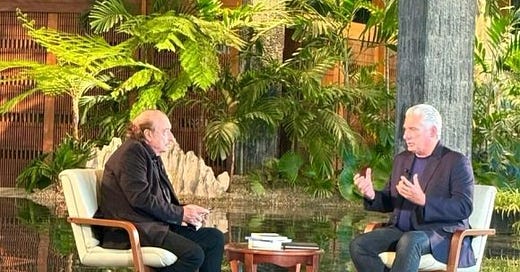Cuban President explains economic crisis
Chronicle of a blockade intensified and an arbitrary list
The Spanish professor and journalist Ignacio Ramonet interviewed Cuban President Miguel Díaz-Canel on May 14, 2024. The two-hour interview was broadcast in its entirety on May 15 in a special two-hour edition of the Mesa Redonda nightly news program in Cuba. The interview was covered in Le Monde Diplomatique of France as well as international media in Latin America and the Caribbean. The interview included discussion of the Cuban economy as well as Cuban foreign policy. Ramonet is well known in Cuba for his extensive interview of Fidel in 2006.
§
The intensified blockade and its consequences
Ramonet began the interview by noting that in Cuba today there are food hardships, inflation, and inadequacies in public services. He asked why, if the U.S. blockade of Cuba has been in place for six decades, suc…



